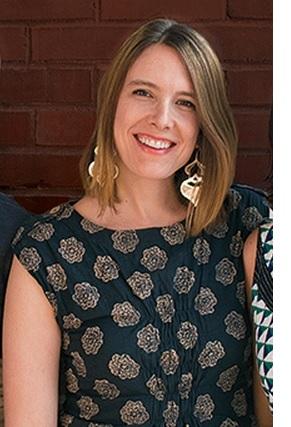February 29, 2016 Cazzie Reyes Opinion
State-Imposed Forced Labor: Why It Matters
Why does having a discussion on state-imposed forced labor in the United States matter?
When Maureen Dunn started Mata (Hindi for “mother”) Traders, a vintage-inspired and artisan-made Indian imports business, she was excited about bringing striking eastern textiles and jewelry to Chicago. Her sales were flourishing, and then one day someone asked her, “Are your products fair trade?”
Unable to answer, Dunn sought to learn more about fair trade. She began to explore the exploitive, mass-producing practices of some sellers. Eventually, Dunn came across a fair trade cooperative whose workers were all women, and today, all of Mata Traders’ products are exclusively from fair trade cooperatives. These groups employ, educate and empower the women who work for them.
Dunn recalls, “As my business blossomed, so did my awareness of the conditions of poverty that exist for much of the population. I began to see my buying power there as a chance to make a difference, and on my second trip I actively sought out producer groups that paid their workers good wages and practiced the principles of fair trade.”
Dunn visits the groups every year. Currently, Mata Traders works with cooperatives in India and Nepal. These cooperatives take out the middleman, do not use child labor and provide women with a sustainable income.

“The cooperatives transform their lives,” Dunn says. “It’s not just about a good livable wage. It’s about lifting people out of poverty. The cooperatives are not your standard workplaces. In fact, they equal social service agencies in the support they provide to end the cycle of poverty for the women and their families. Health care, daycare and scholarships for the women’s children, paid maternity leave, retirement pensions, vision testing: all part of the membership package. Social workers on staff assist the women in addressing their personal needs, from opening a bank account to situations of domestic violence and dealing with HIV/AIDS.
There are regular workshops on topics like hygiene and nutrition, reproduction and parenting and even taboo subjects like child sex abuse. The groups offer literacy classes and computer training, and I’ve seen this educational piece really make a difference. Sidhama told me that before the co-op, she never rode buses because she could not read the bus numbers. Now she travels around Mumbai by bus without problem. The co-ops empower the women to navigate their own lives, quite literally!”
Other than services and education, the cooperatives also promote social mobility.
Dunn elaborates, “This is what we feel is most special about our products. Our garments are individually stitched in small workshops, with one seamstress creating an entire garment rather than repeating the same small action over and over again in a factory production line. Many Mata styles are then carefully finished with hand embroidery in the women’s own homes. Every year when we visit the groups, we take a big stack of our catalogs to show them.
The women eagerly gather around, proudly pointing out the styles they themselves stitched. To get to where they are now, stitching entire garments to exact specifications, the women have put in a lot of work. Their training starts with hand sewing buttons and dolls before moving on to simple machine patterns, like bags, and eventually mastering the sewing machine. If they show leadership skills they can become head of their sewing group or get promoted to positions like trainer, quality checker, materials buyer or assistant production manager. In a country as socially stratified as India, this type of social mobility in the workplace is a rarity.”
Other than social mobility, the workers also gain financial independence.
“Fair trade is most known for producers getting a fair price for their goods,” Dunn concludes. “The women at our co-ops generally earn a living wage that considerably exceeds the local minimum wage, but they are paid per piece so not everyone earns the same amount. The benefit of this system is that it allows for flexibility in terms of hours and skill level. Some women choose to work part time, and for those who are slower sewers, they will never be fired for low productivity as they would in a factory. The women do exercise control in determining the piece rate, and as the cooperatives are member-owned organizations, they receive a share of the profits.”
By supporting groups that reject exploitative labor practices and by selling fair trade products, Dunn is facilitating a way for producers and consumers to fight modern-day slavery.
“About Us.” Matatraders.com. Mata Traders, n.d. Web. 09 Jun. 2014.
Dunn, Maureen. “5 Lessons in Sustainable Apparel from Mata Traders.” Triplepundit.com. TriplePundit: People, Planet, Profit, 09 Jun. 2014.
McDonnell, Jerome. “Making Fair Trade Fashionable.” Wbez.org. Chicago Public Media, 30 Aug. 2012. Web. 09 Jun. 2014.
Pick an antislavery organization to receive a percentage of your Amazon Smile purchases
The Chinese government forces religious and ethnic minorities to labor in internment camps in the name of "re-education."